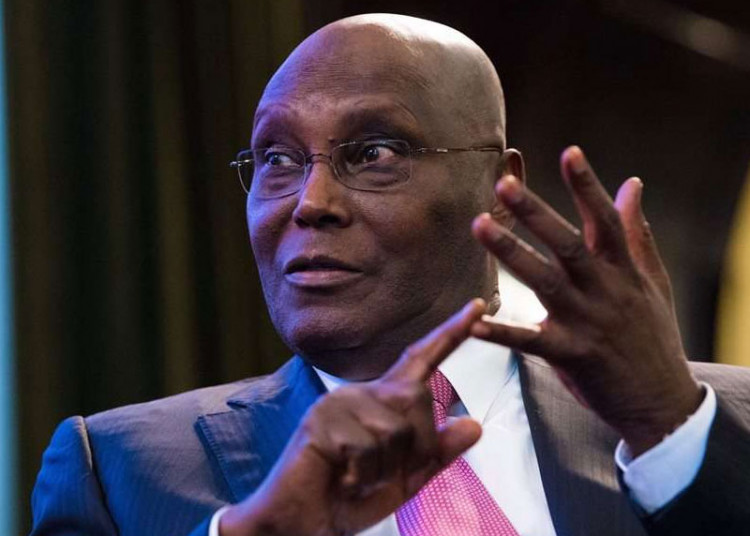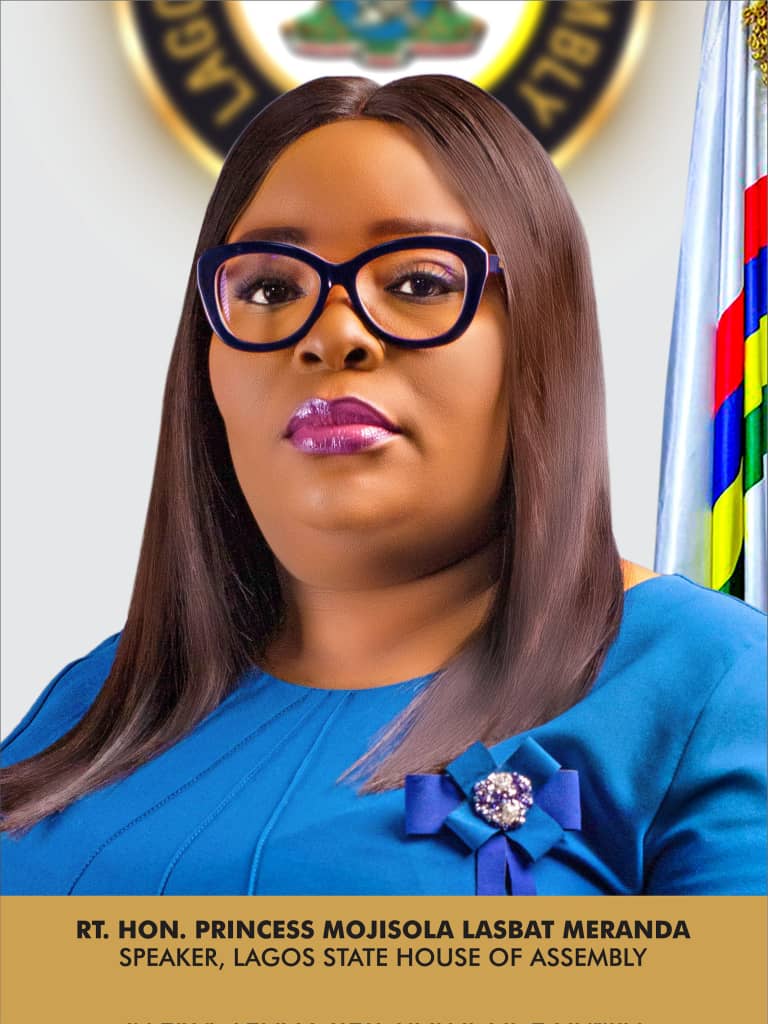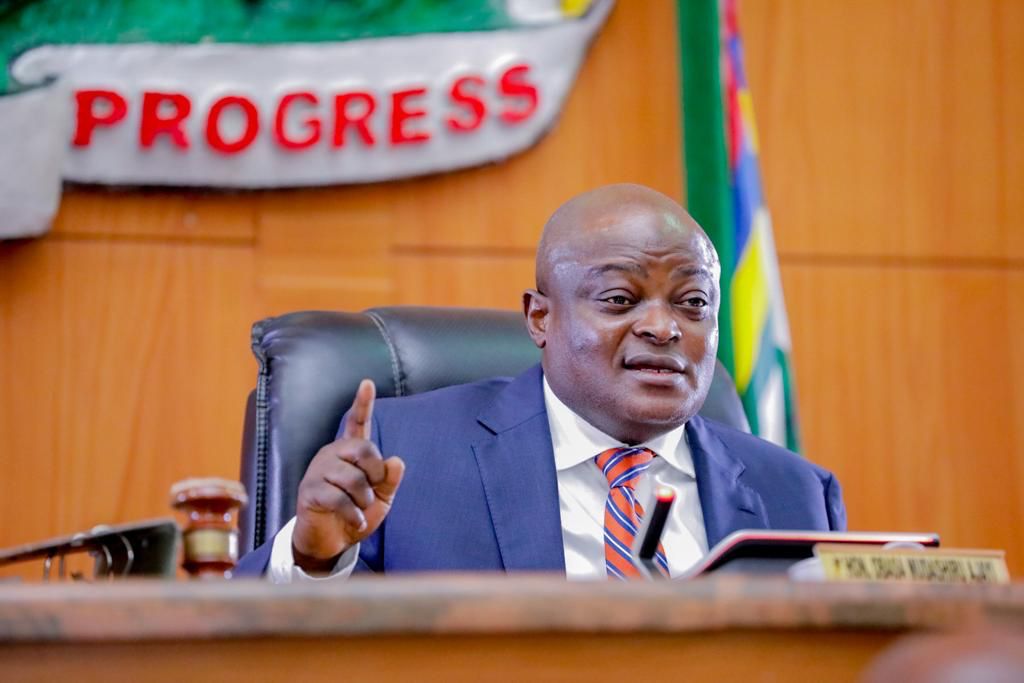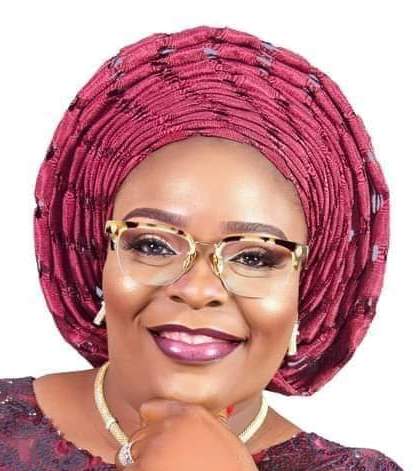Since the emergence of Rt. Hon Mojisola Lasbat Meranda as the first female speaker of the Lagos House of Assembly and consequently resumption in office on Monday, January 27, 2025, the Lagos polity had witnessed various activities.
At the inception of her emergence, many had wondered if the impeachment of ex-speaker Mudashiru Obasa would hold water as a result of his absence but the lawmakers that spearheaded the impeachment and the election of Meranda insisted that the process was done to uphold the sanctity and integrity of the House.
Upon the return of Obasa, the ex-speaker, who has refused to leave the official residence of the Speaker of Lagos Assembly, claimed his impeachment and emergence of Meranda were illegal.
However, lawmakers including Hon. Ogundipe Stephen Olukayode and Hon. Abiodun Tobun backed the process of Obasa’s impeachment and the emergence of Meranda with Chapter 5, Section 92 of the Nigerian Constitution, which says a Speaker of House of Assembly or Deputy Speaker of the House of Assembly shall vacate the office if he/she ceases to be a member of the House of Assembly otherwise than by reason of the dissolution of the House; When the House first sits after any dissolution of House; or if he/she is removed from office by a resolution of House of Assembly by the votes of not less than two-third majority of the members of the House.
In another twist, the men of the Lagos Command of the Department of State Services (DSS) detained some Lagos lawmakers over the impeachment process. Determined not to renege on their resolutions, members of the Lagos State House of Assembly visited the Shangisha office of the DSS to reaffirm that the removal of the former Speaker was in line with constitutional provisions.
The latest ploy is to use the media in distorting the real issues and spreading false narratives to cause unrest to the Assembly and the new leadership.
Earlier on Sunday, February 2, 2025, there were false reports claiming President Bola Ahmed Tinubu, who also doubles as the leader of the All Progressive Congress, has instructed the current leadership of the House of Assembly led by Rt. Hon Meranda to resign for Obasa to return and be reinstated. The report even falsely linked the distinguished First Lady, Oluremi Tinubu, to the fake tale noting that she spoke to the president on behalf of Obasa to ensure Meranda and other principal officers resign. This, the report noted, was to avoid political issues ahead of the next elections.
“When it seemed ploys and tactics from the ex-speaker are not yielding expected results, those behind the plots have resorted to sponsoring wild rumours and dropping names,” an inside political source revealed. “The president is the leader of our party and it’s quick to drop his name around in the media to make Obasa seem like one who has a strong backing. All the antics from Obasa that you are seeing are all the ex-speaker clutching to the last straws of what remains of his political career.”
Another source close to the presidency waved off the report as not only a joke but a figment of the writer’s imagination or possibly sponsored by the Obasa camp.
“The people claiming the president wasn’t aware of the removal of Obasa are insulting the president and the security architecture of his administration. How can something like that take place and the DSS and other people handling intelligence will not know. These are ordinary civilian politicians, not military officers who can hold clandestine meetings. So, something of that magnitude happened in Asiwaju’s Lagos and he didn’t know?” the source asked rhetorically.
Continuing, the source revealed that the narrative that President Bola Ahmed Tinubu, who also serves as the leader of the All Progressive Congress and linking the distinguished first lady, Oluremi Tinubu to the mix is pure lies.
“How can anyone think he wasn’t aware and so he is unhappy with the lawmakers? He had received them in the villa after they were all elected, the same way the governor had received them. If Asiwaju didn’t want it to happen, he would have nipped the plan in the bud and stopped them in their tracks. I insist, something of that political magnitude could not have happened and he would be in the dark.”
Meanwhile, Rt. Hon. Mojisola Lasbat Meranda has resumed office and received dignitaries and association including the executives of National Association of Nigerian Students, representatives from the 1st Assembly to the 9th Assembly of the Lagos State House of Assembly, amongst others while presiding over the plenary sessions in the house without issues.
The facts of the emergence of Rt. Hon. Mojisola Lasbat Meranda is one that is open to the general public.
Rt. Hon. Meranda’s emergence is coming from a place of worth and competence. As one, who never had issues with the former speaker while she held the position of the Deputy Speaker nor contested for the position after the speaker was impeached, it becomes worrisome to many how she emerged.
Some argued that her emergence was influenced by the powers that be but investigation has proven that despite being the immediate younger sister to the Oniru of Iru land, Meranda has achieved popularity and deposited confidence in the consciousness of other lawmakers with her smart, intelligent and brilliant mien. Her elder brother has repeatedly noted that he has no business with the activities in the state assembly as he’s busy with the development of Iru land, hence he has no hand in either her emergence nor her running of the house of assembly activities since her emergence in January 2025.
Meanwhile, Rt. Hon. Meranda has enjoyed unwavering support and backing from the female folks across the state. Aside from her dedication to women, widows, children and youths’ causes, her emergence as the first female speaker in the Lagos Assembly since the inauguration of the first assembly in 1979 has ignited a united front from various women oriented civil and labour organisations across the state.
Meranda, who is a wife, mother, and politician with an impressive resume, is an easy going person, who was voted by the members of the assembly as a result of her worth and the confidence they have in her


 Trending News4 years ago
Trending News4 years ago
 Others3 years ago
Others3 years ago
 Humanity3 years ago
Humanity3 years ago
 Others5 years ago
Others5 years ago
 Business10 months ago
Business10 months ago
 Business5 months ago
Business5 months ago














